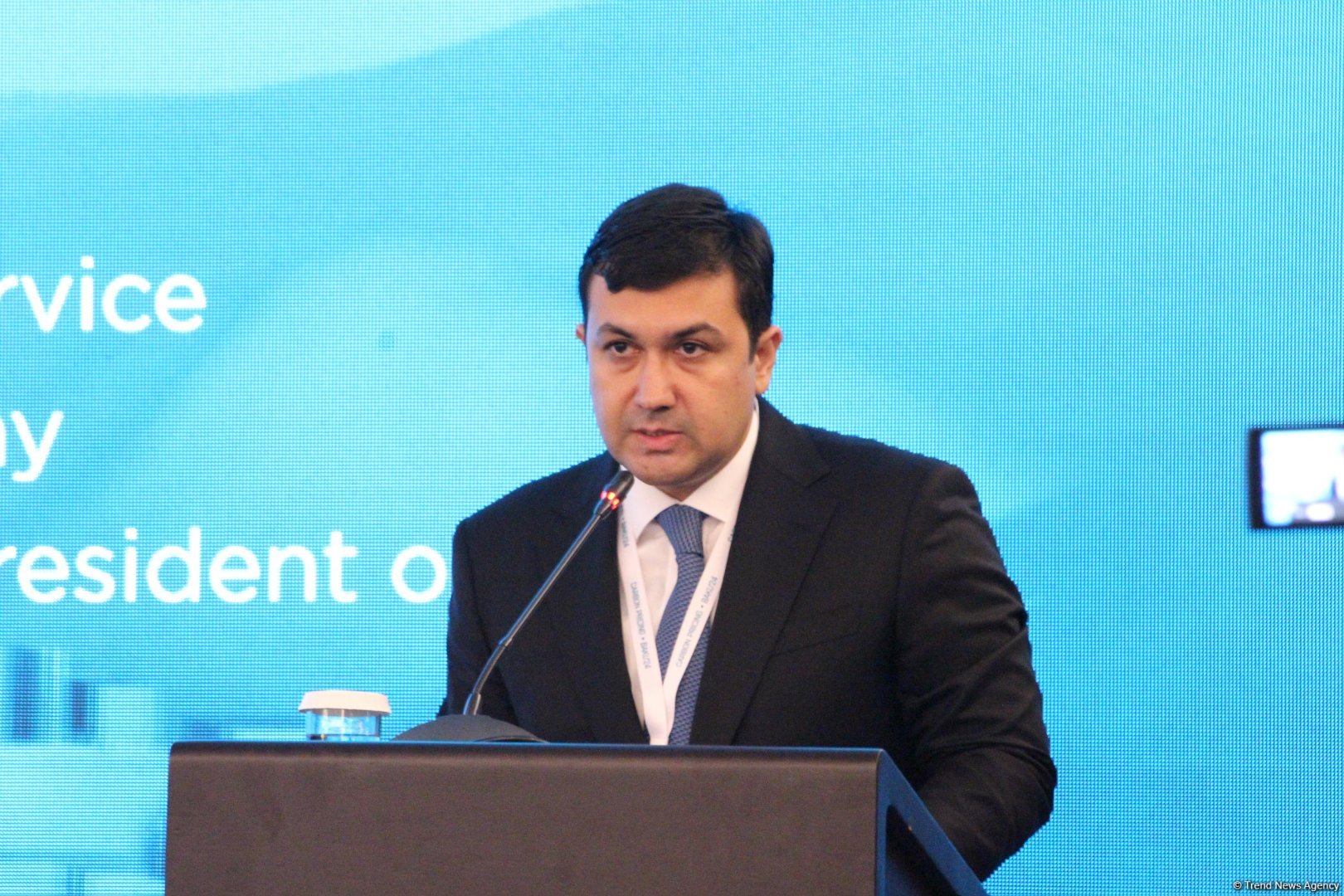BAKU, Azerbaijan, September 25. Negotiations are underway with international organizations to develop an optimal "green" tax policy for Azerbaijan, the head of the State Tax Service under the Ministry of Economy of Azerbaijan, Orkhan Nazarli, said at the international forum on carbon pricing held in Baku, Trend reports.
Orhan Nazarli stated the importance of exploring the possibility of introducing a carbon tax or a similar levy aimed at reducing carbon emissions, which is widely used in international practice.
“Within the framework of these activities, the establishment of a system for measuring carbon emissions in our country, which will be the basis for taxation, is also being considered. Ongoing processes to introduce measures similar to those used elsewhere in the world to protect the environment are being actively discussed at the government level with the participation of colleagues from various institutions. Discussions are underway with international organizations, research centers, educational institutions, and industry representatives to share experiences and analyze the challenges of such initiatives. We not only study the best practices but also jointly discuss the challenges they bring to develop the best tax policy for our country,” he noted.
Nazarli mentioned that Azerbaijan has already adopted legislative acts aimed at encouraging the production and use of low-emission products and technologies.
“The role of tax policy in stimulating the "green" economy is extremely important. With this in mind, supporting investments in renewable energy as well as reducing the carbon footprint in the manufacturing sector and exporting products through tax instruments is at the center of the national tax system. Many measures are being taken to protect the environment, and tax instruments play an active role in supporting these initiatives. We are convinced that ensuring sustainable economic development and the transition to a "climate-oriented green economy” in the country is possible not only through tax policy or the introduction of additional taxes for businesses but also through the promotion of renewable energy and green technologies. Our country has already adopted legislative acts aimed at encouraging the production and use of low-emission products and technologies. For example, there are incentives for electric and hybrid cars, charging installations for electric motors, and incentives to transfer surplus electricity generated by active consumers using renewable sources to the grid. Providing economic incentives for green energy producers is one of our priorities,” he said.
Nazarli emphasized that climate change is a global threat that jeopardizes human health, one of the most precious aspects of our existence.
“For this reason, the Conference of the Parties to the UN Framework Convention on Climate Change has a crucial function in combating climate change at the global level. The decisions taken on this platform allow the countries of the world to better confront climate change and contribute to sustainable development. Both climate change trends and the stages of adaptation, mitigation, and damage and loss assessment play an important role in this fight. All these aspects contribute to countries acting together for a more sustainable future. That is why we are here today to discuss one of the most effective tools in the fight against climate change - carbon pricing. Carbon pricing is an important tool that encourages economic actors to reduce greenhouse gas emissions and promotes sustainable development,” he explained.
According to him, the exchange of experience in this area allows us to assess the effectiveness of carbon pricing tools used in different countries and companies, as well as to improve them.
“Every country and company faces different challenges and problems in combating climate change. The lessons learned from addressing these challenges can be valuable for other countries and companies. By sharing experiences, effective carbon pricing strategies can be disseminated and implemented globally. Countries and companies just starting on this journey can learn from the successes and mistakes of more experienced partners, reducing their risks. This helps to better understand the possible barriers in the implementation of carbon pricing instruments and successfully overcome them,” he added.







